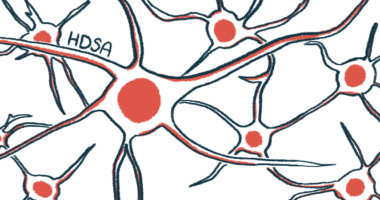Nonprofit Pushes for US Bill to End Wait for Patient Benefits

U.S. lawmakers have again introduced legislation that would speed up the process for Huntington’s disease (HD) patients to get Medicare and Social Security Disability Insurance (SSDI) benefits.
The Huntington’s Disease Disability Insurance Access Act of 2021 — S 868/ HR 2050 — would waive the mandatory two-year Medicare waiting period for Huntington’s patients, as well as the five-month waiting time for SSDI benefits.
It was recently introduced by Sen. Kirsten Gillibrand and Rep. Bill Pascrell, Jr. Pascrell had originally sponsored a similar measure — HR 2770 — the Huntington’s Disease Parity Act of 2019, which would have waived the 24-month period Medicare waiting period.
The Huntington’s Disease Society of America (HDSA), with the help of the Huntington’s community, has worked to build support for such legislation. It recently launched an Advocacy Caucus, made up of volunteer advocates from around the country, to support the measure and other efforts at federal and state levels.
“With the reintroduction of the HD Parity Act, we hope that Congress can work together to finally pass this bill that is so important to individuals and families suffering from Huntington’s disease,” Louise Vetter, president and CEO of the society, said in a press release.
The ALS Disability Insurance Access Act of 2019, which eliminated the five-month waiting period for people with amyotrophic lateral sclerosis (ALS) to receive SSDI, became law last December.
“Like our friends in the ALS community, individuals with HD don’t have time to wait to access SSDI benefits when they need them most,” Vetter said. “With the passage of HR 1407/ S 578 in 2020, we know that members of Congress understand the need to pass disease-specific bills to fix disease-specific problems.”
The statutory five-month waiting period for Huntington’s disease is aimed at allowing temporary conditions to reverse. But since there currently are no treatments to stop Huntington’s progression, many people will see their condition worsen before becoming eligible for the benefits. If enacted, the measure would mitigate some of the financial hardships patients face.
“Like ALS, HD is a rare, fatal neurodegenerative disease that robs a person of their ability to walk, talk, and care for themselves,” the HDSA states in its press release. “But unlike ALS, HD is genetic, and HD impacts a person’s cognitive abilities and functions.”
“HD families get no reprieve from this disease, generation after generation. And it’s time HD families were exempt from these harmful waiting periods instituted into the SSDI program. Our families cannot afford to wait for help.”
As for SSDI, it can take years for a Huntington’s patient to be deemed eligible. If the person is approved for benefits, he or she must wait two years before coverage begins. Because Huntington’s disease is progressive — symptoms worsen over time — the wait period can be “devastating” for families, the HDSA said.
“The bottom line is that the HD Parity Act is a crucial bill that must be passed for Huntington’s disease families,” Vetter added. “Two years is too long for HD families and we need our representatives to step up and support this bill.”






